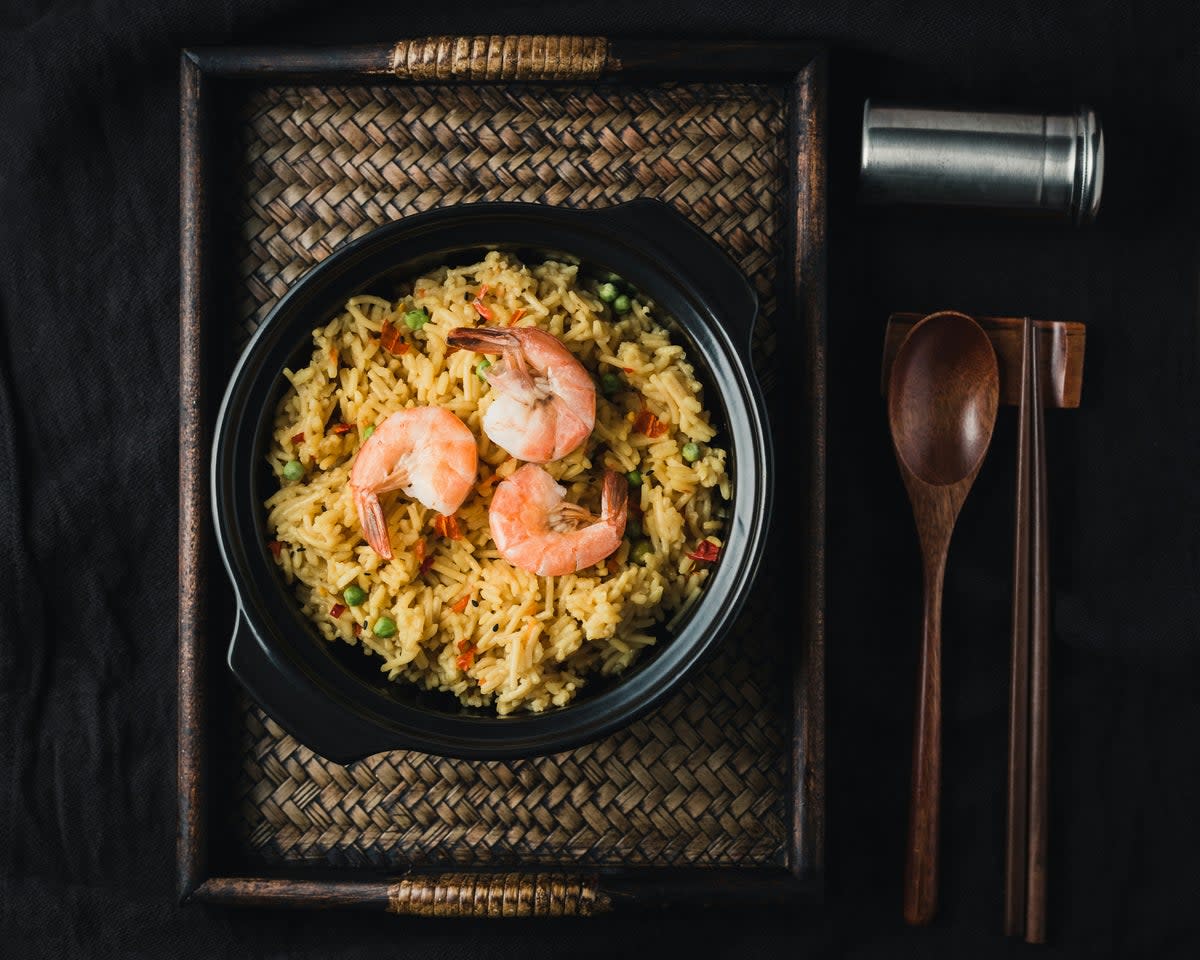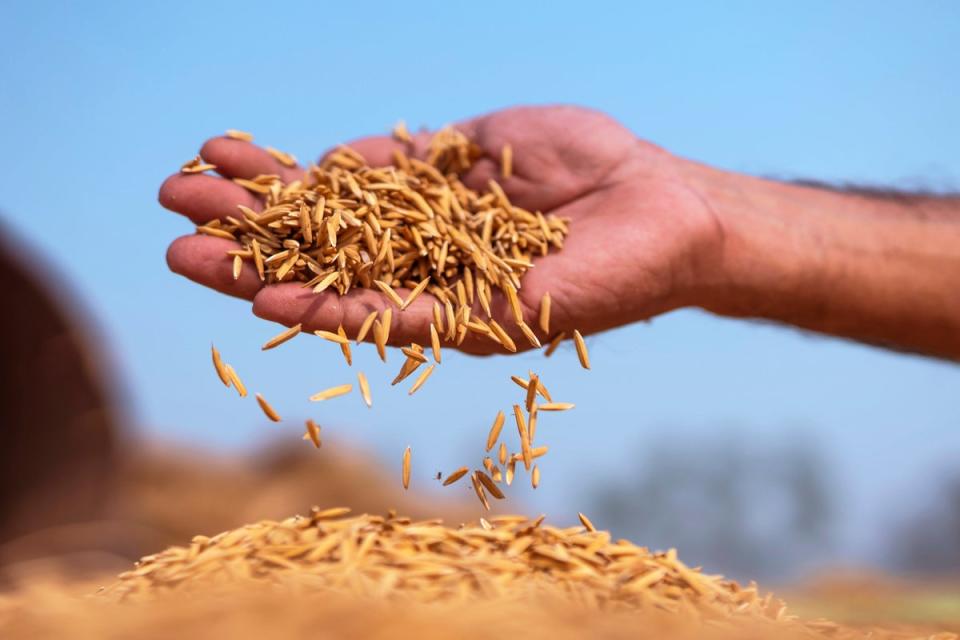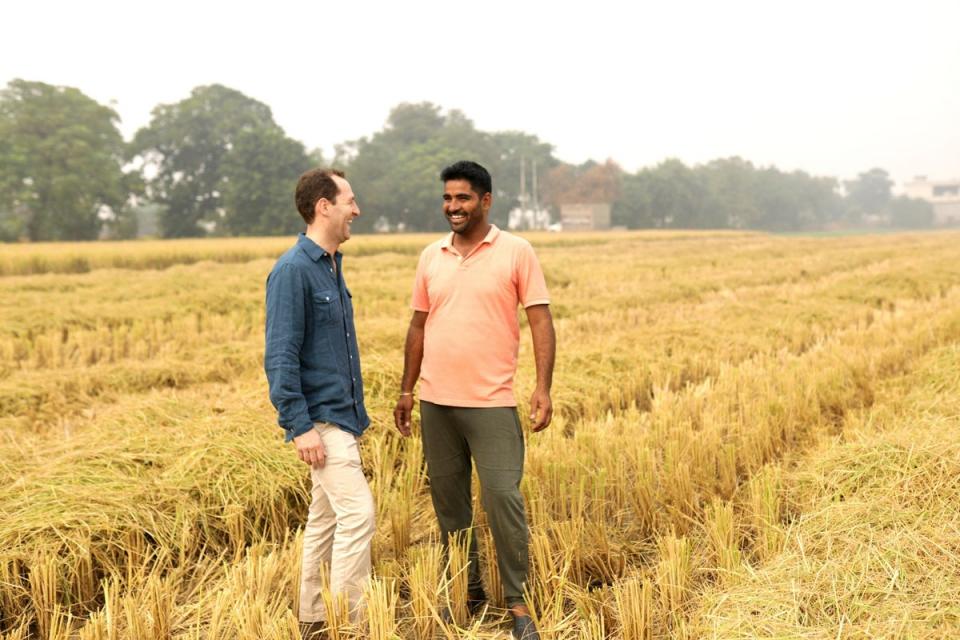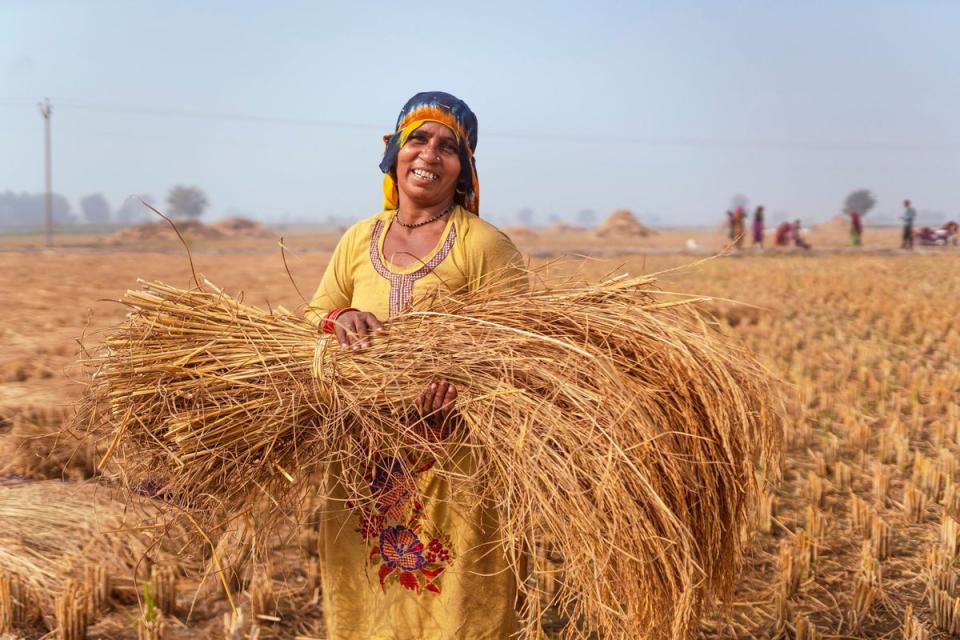Is rice the least sustainable product in your shopping basket?

It may be the world’s most consumed crop, but while the global footprint of meat and dairy are often debated, rice is rarely on the agenda. Yet its impact on climate change can be devastating. After beef, rice is the second biggest emitter of global greenhouse gases in all food production. At 2.1 gigatonnes per year, more than double the emissions of global air travel. Rice also uses more water than any other crop: as much as 5,000 litres to grow just 1kg — equivalent to a mind-boggling 63 full bathtubs of water.

Which is why former investment director Fergus O’Sullivan decided to do something about it. And now the 38-year-old Londoner has launched Nice Rice, the UK’s first sustainably farmed rice brand.
O’Sullivan had previously worked at Piper, which has invested in brands including Propercorn, Neom Organics and Mindful Chef. “I’d seen the impact brands can have,” said O’Sullivan. “So I thought why not use the knowledge I’ve picked up to build one that has a positive impact on the world?”
He left his job to explore his options when two climate-related events happened. First a freak summer hailstorm swept through London which the Met Office attributed to ‘changing climates’. Then O’Sullivan’s friend, coffee entrepreneur James Hoffmann, visited a rice field in the Philippines and was horrified at how much water the field used.
He began investigating the extent that conventional rice production harms the environment. He also found out there’s an alternative that’s much better for the planet but hardly anyone knows about — and which is rarely used. “Simply put, it’s a more sustainable farming method,” said O’Sullivan. “Instead of permanently flooding the fields, farmers allow them to dry out during the growing season.”

The method can be traced back to Madagascar in the 1980s where it was apparently stumbled upon by accident and developed by local farmers and a Jesuit priest. Since then, it’s been validated in hundreds of scientific papers and endorsed for its environmental benefits by the UN and the Intergovernmental Panel on Climate Change. Yet it’s only used by a tiny fraction of the farming community. The overwhelming majority do conventional farming. And it’s their rice that’s been on our supermarket shelves.
Tilda have defended the farming methods of the growers they use, explaining that they are working hard to increase sustainability. “We are encouraging farmers to adopt more sustainable ways of growing rice... Last year 925 farmers joined the project that saves up to 30% of irrigation water, and reduces methane by 45% contributing to an overall reduction in farm level greenhouse gas of 28%. This represents almost a third of the basmati rice acreage.”
If all farmers adopted the method, it’s estimated they would reduce total global emissions by an astonishing 1%.
So if the sustainable method has such amazing benefits, why aren’t all farmers doing it?
“Most rice is grown by small family farmers in some of the most remote and poorest parts of the world,’ said O’Sullivan. “So they simply aren’t aware of it yet.” They are also reliant on conditions created by governments and markets, he says. Since the ‘Green Revolution’ in India in the 1960s, farmers were provided with harmful subsidised fertiliser and pesticides. Conditions and knowledge are improving but the pace is slow.
Despite having no experience in the food industry, O’Sullivan pieced together a supply chain, bringing sustainably farmed rice from a group of farmers in Haryana State, North India into the UK market.

After several false starts, including a retreating monsoon which didn’t retreat quickly enough and destroyed his first order, Nice Rice launched earlier this year and is now in Waitrose, Ocado and independent retailers nationwide. The brand recently picked up two Great Taste awards for its debut products.
Data from Nice Rice farmers in 2022 show they achieved a 49% reduction in CO2-equivalent emissions per tonne of rice compared to the national average, reduced the water used for irrigation by 63% and even improved their yield by an average of 10%.
O’Sullivan pays these farmers a ‘premium price’, he says, to encourage them to commit to sustainable farming practices for the long-term. This means that the brand is slightly pricier than the established players. But O’Sullivan believes its message is strong enough to cut through generations.


